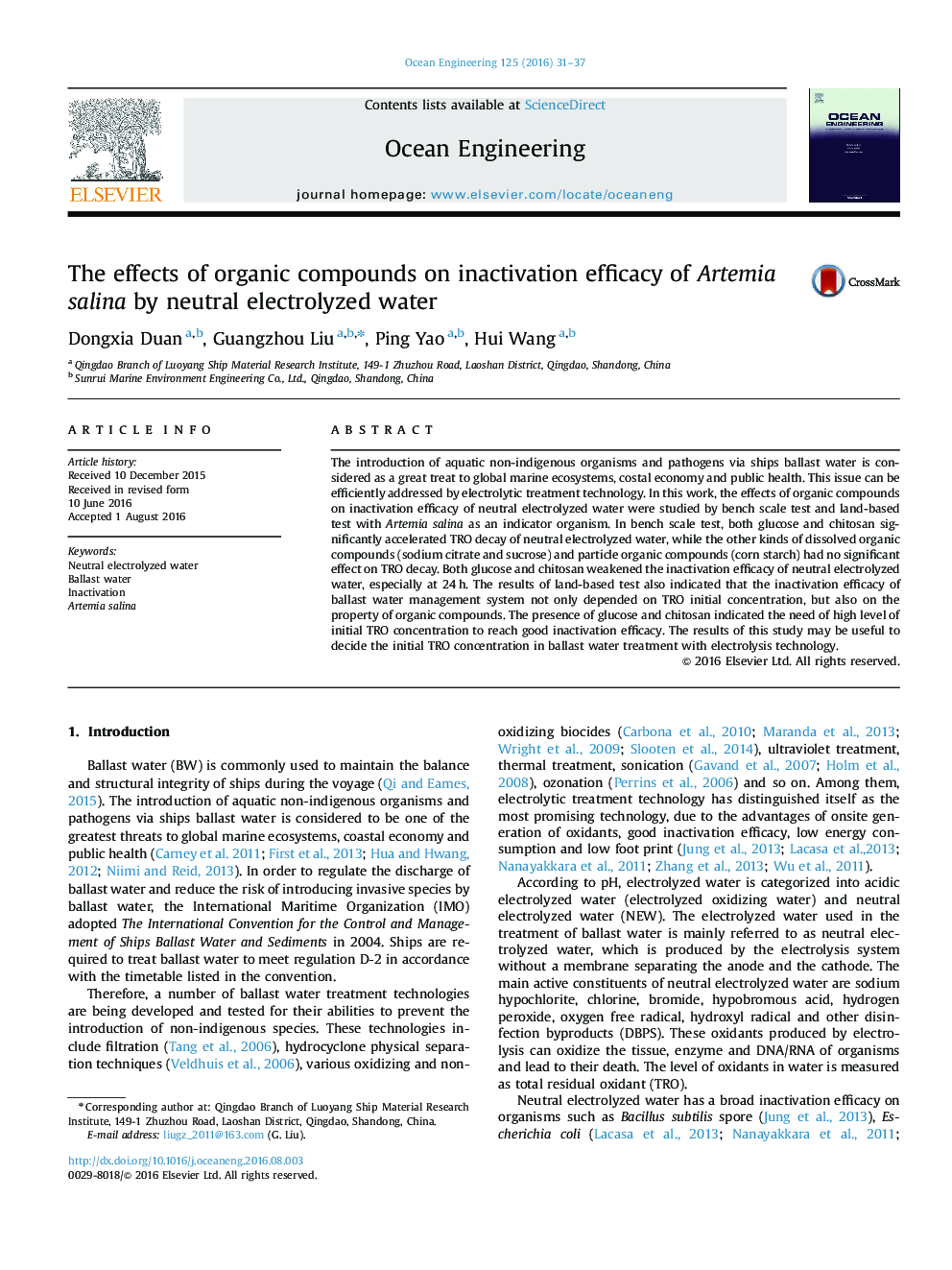| Article ID | Journal | Published Year | Pages | File Type |
|---|---|---|---|---|
| 8063898 | Ocean Engineering | 2016 | 7 Pages |
Abstract
The introduction of aquatic non-indigenous organisms and pathogens via ships ballast water is considered as a great treat to global marine ecosystems, costal economy and public health. This issue can be efficiently addressed by electrolytic treatment technology. In this work, the effects of organic compounds on inactivation efficacy of neutral electrolyzed water were studied by bench scale test and land-based test with Artemia salina as an indicator organism. In bench scale test, both glucose and chitosan significantly accelerated TRO decay of neutral electrolyzed water, while the other kinds of dissolved organic compounds (sodium citrate and sucrose) and particle organic compounds (corn starch) had no significant effect on TRO decay. Both glucose and chitosan weakened the inactivation efficacy of neutral electrolyzed water, especially at 24Â h. The results of land-based test also indicated that the inactivation efficacy of ballast water management system not only depended on TRO initial concentration, but also on the property of organic compounds. The presence of glucose and chitosan indicated the need of high level of initial TRO concentration to reach good inactivation efficacy. The results of this study may be useful to decide the initial TRO concentration in ballast water treatment with electrolysis technology.
Related Topics
Physical Sciences and Engineering
Engineering
Ocean Engineering
Authors
Dongxia Duan, Guangzhou Liu, Ping Yao, Hui Wang,
